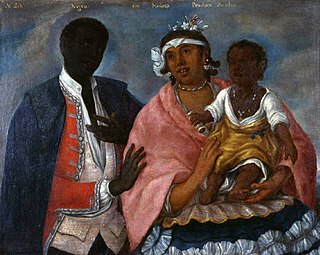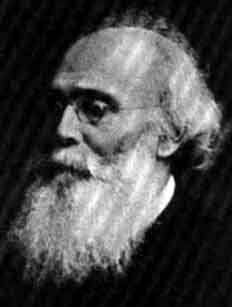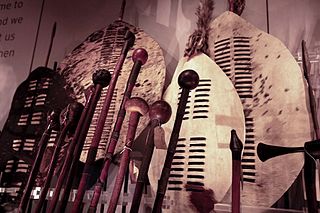
South African English is the set of English language dialects native to South Africans.

Zulu, or IsiZulu as an endonym, is a Southern Bantu language of the Nguni branch spoken and indigenous to Southern Africa. It is the language of the Zulu people, with about 13.56 million native speakers, who primarily inhabit the province of KwaZulu-Natal in South Africa. Zulu is the most widely spoken home language in South Africa, and it is understood by over 50% of its population. It became one of South Africa's 12 official languages in 1994.
Muthi is a traditional medicine practice in Southern Africa as far north as Lake Tanganyika.

Traditional healers of Southern Africa are practitioners of traditional African medicine in Southern Africa. They fulfil different social and political roles in the community like divination, healing physical, emotional, and spiritual illnesses, directing birth or death rituals, finding lost cattle, protecting warriors, counteracting witchcraft and narrating the history, cosmology, and concepts of their tradition.
A spatula is a broad, flat, flexible blade used to mix, spread and lift material including foods, drugs, plaster and paints.

In Nguni mythology, Tikoloshe, Tikolosh, Tonkolosh, Tonkolosi, Tokoloshe, Tokolotshe, Thokolosi, or Hili is a dwarf-like water spirit. It is a mischievous and evil spirit that can become invisible by drinking water or swallowing a stone. Tokoloshes are called upon by malevolent people to cause trouble for others. At its least harmful, a tokoloshe can be used to scare children, but its power extends to causing illness or even the death of the victim. Protection against them includes traditional methods such as raising beds off the ground and interventions by spiritual figures like pastors with an apostolic calling or traditional healers (sangomas), who are seen to possess the power to banish them. The Tikoloshe is often referenced satirically to critique the influence of superstitions on behaviour and society.
A cant is the jargon or language of a group, often employed to exclude or mislead people outside the group. It may also be called a cryptolect, argot, pseudo-language, anti-language or secret language. Each term differs slightly in meaning; their uses are inconsistent. Richard Rorty defines cant by saying that "'Cant', in the sense in which Samuel Johnson exclaims, 'Clear your mind of cant,' means, in other words, something like that which 'people usually say without thinking, the standard thing to say, what one normally says'." In Heideggerian terms it is what "das Man" says.

Kraal is an Afrikaans and Dutch word, also used in South African English, for an enclosure for cattle or other livestock, located within a Southern African settlement or village surrounded by a fence of thorn-bush branches, a palisade, mud wall, or other fencing, roughly circular in form. It is similar to a boma in eastern or central Africa.

Sambo is a derogatory label for a person of African descent in the Spanish language. Historically, it is a name in American English derived from a Spanish term for a person of African and Native American ancestry. After the Civil War, during and after the Jim Crow era the term was used in conversation, print advertising and household items as a pejorative descriptor for black people. The term is now considered offensive in American and British English.

Kaffir, also spelled Cafri, is an exonym and an ethnic slur – the use of it in reference to black people being particularly common in South Africa. In Arabic, the word kāfir ("unbeliever") was originally applied to non-Muslims before becoming predominantly focused on pagan zanj who were increasingly used as slaves. During the Age of Exploration in early modern Europe, variants of the Latin term cafer were adopted in reference to non-Muslim Bantu peoples even when they were monotheistic. It was eventually used, particularly in Afrikaans, for any black person during the Apartheid and Post-Apartheid eras, closely associated with South African racism. While originally not pejorative, it became a pejorative by the mid-20th century and is now considered extremely offensive hate speech. Punishing continuing use of the term was one of the concerns of the Promotion of Prevention of Unfair Discrimination Act enacted by the South African parliament in the year 2000 and it is now euphemistically addressed as the K-word in South African English.
Fanagalo, or Fanakalo, is a vernacular or pidgin based primarily on Zulu with input from English and a small amount of Afrikaans input. It is used as a lingua franca, mainly in the gold, diamond, coal and copper mining industries in South Africa and to a lesser extent in the Democratic Republic of the Congo, Namibia, Zambia, and Zimbabwe. Although it is used as a second language only, the number of speakers was estimated as "several hundred thousand" in 1975. By the time independence came–or in the case of South Africa, universal suffrage–English had become sufficiently widely spoken and understood that it became the lingua franca, enabling different ethnic groups in the same country to communicate with each other, and Fanagalo use declined.

The Religious System of the Amazulu (1870), by Henry Callaway, describes the beliefs of the Amazulu people. It was written in both English and Zulu. Henry Callaway was an English missionary. His interest in the Zulu people began when he settled on the banks of the Nsunguze river where he created various books influenced by them. One of those books was The Religious Systems of The Amazulu. The book is presented in question and answer format. It is divided into four different sections which include, Unkulunkulu, Amatonga, Izinyanga Zokubula, and Abatakati. Each of these sections focuses on the four main aspects which constitute the religious system of the Zulu people.

A knobkerrie, also spelled knobkerry, knobkierie, and knopkierie (Afrikaans), is a form of wooden club, used mainly in Southern Africa and Eastern Africa. Typically they have a large knob at one end and can be used for clubbing an enemy's head. For the various peoples who use them, they often have marked cultural significance. Being able to carry the knobkerrie has also had a political dimension, especially in South Africa.
Amandla in the Nguni languages Xhosa and Zulu means "power". The word was a popular rallying cry in the days of resistance against apartheid, used by the African National Congress and its allies. The leader of a group would call out "Amandla!" and the crowd would respond with "Awethu" or "Ngawethu!", completing the South African version of the rallying cry "power to the people!". The word is still associated with struggles against oppression.
Tsotsitaal is a South African vernacular dialect derived from a variety of mixed languages mainly spoken in the townships of Gauteng province, but also in other agglomerations all over South Africa. Tsotsi is a Sesotho, Pedi or Tswana slang word for a "thug" or "robber" or "criminal", possibly from the verb "ho lotsa" "to sharpen", whose meaning has been modified in modern times to include "to con"; or from the tsetse fly, as the language was first known as Flytaal, although flaai also means "cool" or "street smart". The word taal in Afrikaans means "language".

Euphorbia cupularis, referred to by the common name dead-man's tree is a succulent tree or shrub of the spurge family, Euphorbiaceae. It is found in South Africa and Eswatini.
In June 2007 the Office of the Premier of the Mpumalanga province in South Africa leaked a draft Mpumalanga Witchcraft Suppression Bill of 2007.









